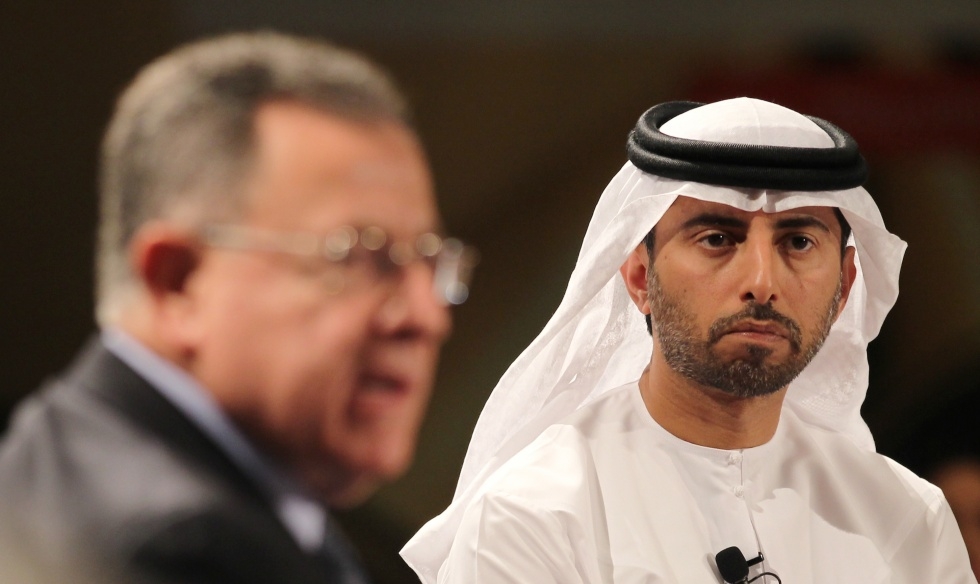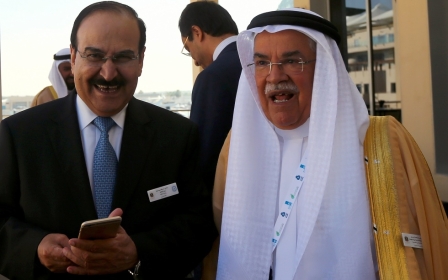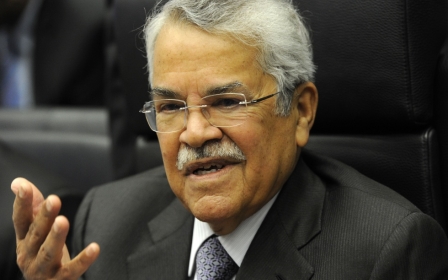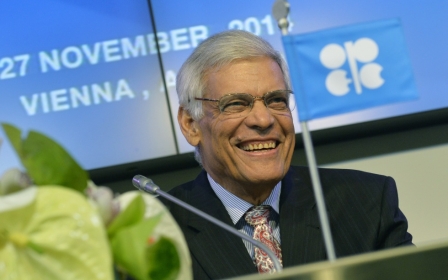OPEC cannot keep protecting the price of oil: UAE energy minister

The Organisation of Petroleum Exporting Countries (OPEC) cannot keep protecting the price of oil, according to a senior official from the United Arab Emirates (UAE), suggesting that the production of shale oil in North America needed to be curbed.
"We cannot continue to be protecting a certain price," UAE Energy Minister Suhail al-Mazrouei said.
"We have seen the oversupply, coming primarily from shale oil, and that needed to be corrected," he told participants at the Gulf Intelligence UAE Energy Forum in Abu Dhabi, referring to the rising output from non-OPEC members, such as the increasing production of shale oil in the US.
Since June, there has been a steady fall in the price of oil worldwide which, while seen as potentially positive for consumers who can access the lower prices, has proved catastrophic for some oil-producing countries like Russia, whose currency is currently incredibly weak as a result.
Mazrouei said the UAE remains "concerned" about balance in the oil markets but "cannot under any circumstances be the only party responsible."
"We are telling the market and other producers to be rational, to be like OPEC and look at growth in the market," Mazrouei said.
Numerous senior figures from OPEC countries have been warning that the price of oil is likely to continue to to fall.
Speaking to USA Today, Saudi businessman Prince Alwaleed bin Talal, said he was sure the world would never see a $100 barrel of oil again.
“If supply stays where it is, and demand remains weak, you better believe it is gonna go down more,” he told the magazine.
“But if some supply is taken off the market, and there's some growth in demand, prices may go up. But I'm sure we're never going to see $100 anymore. I said a year ago, the price of oil above $100 is artificial. It's not correct.”
The refusal of Saudi Arabia, the world's largest oil producer responsible for a third of the total OPEC output, to cut back it own production of oil has been a major factor in maintaining the low price of oil. Their refusal has been seen by some commentators as a tool to punish the governments of Iran and Russia with whom they are engaged in a proxy war in Syria.
Speaking to the Shura council last week, however, Saudia Arabia's Crown Prince Salman bin Abdulaziz al Saud, blamed a sluggish global economy and the resulting low demand as a reason for the fall in oil prices.
"You are aware of the urgent tensions taking place in the international oil market, caused by a number of factors, foremost the weak global economic growth," he said.
"This development is not new in the oil market, and the kingdom has in the past dealt with it firmly and wisely," he added, emphasising that the Kingdom would maintain the “same approach” towards the market.
Oil prices continued to slide towards six-year lows in Asian trade on Tuesday after Brent crude closed at under $50 a barrel the previous day for the first time since April 2009.
The decision of Wall Street investment giant Goldman Sachs to slash price outlook, helped fuel anxiety in the international markets.
Brent crude for February delivery fell $1.33 to $46.10 a barrel - around its lowest point since April 2009.
Middle East Eye propose une couverture et une analyse indépendantes et incomparables du Moyen-Orient, de l’Afrique du Nord et d’autres régions du monde. Pour en savoir plus sur la reprise de ce contenu et les frais qui s’appliquent, veuillez remplir ce formulaire [en anglais]. Pour en savoir plus sur MEE, cliquez ici [en anglais].




